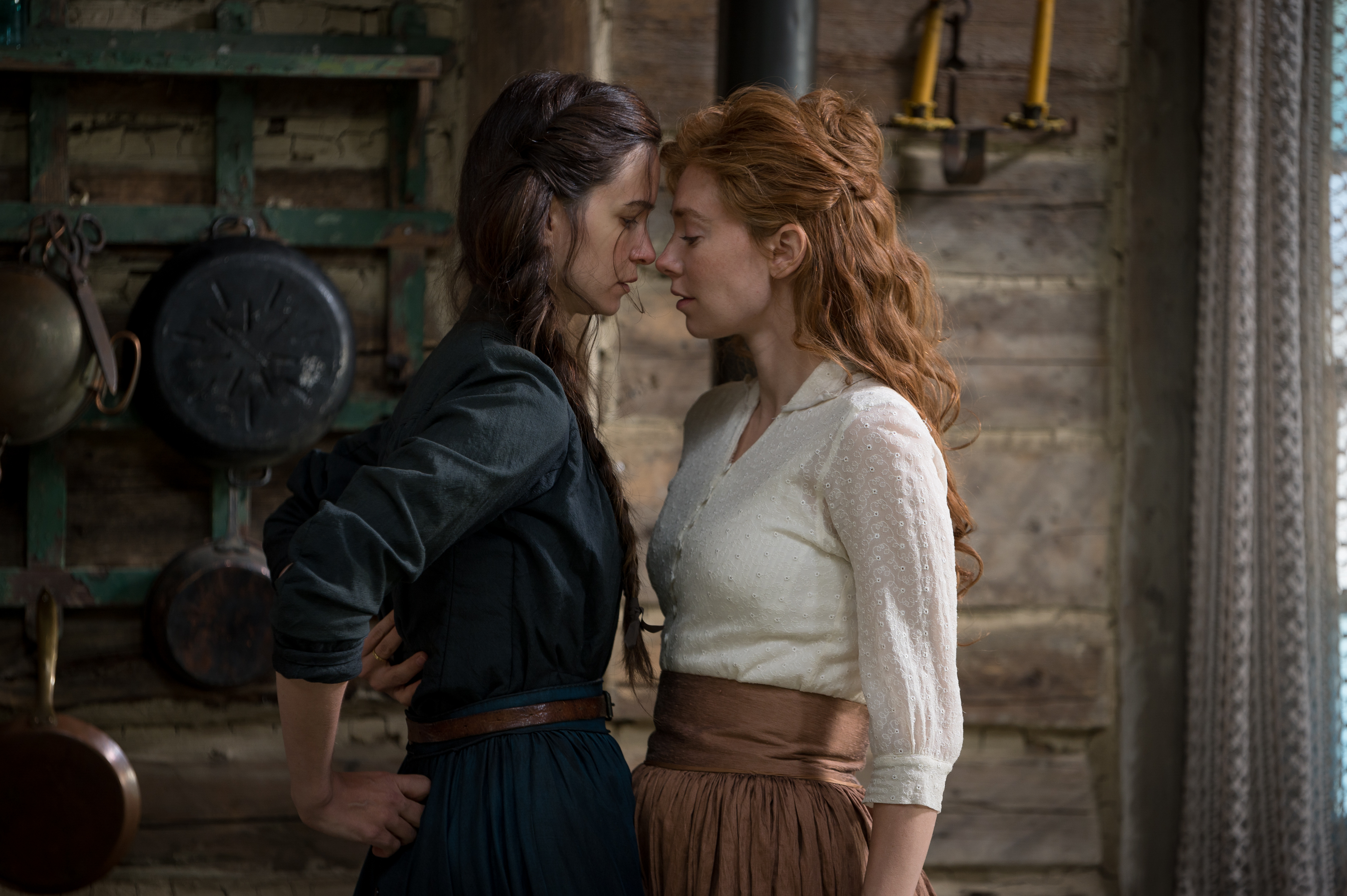by Jason Adams

As a writer it must be said (or written even!) that I love words. Perhaps on occasion, it has been said and written, more than I ought to. It's the romance of my life. You can spend hours staring in the eyes of one -- erasing it, putting it back, looking for it the absolute best of partners. It's in words where I find meaning, too much and too often -- the experience of a thing is here and gone but once you've dug it back up and defined it, encased it into the tombs of steely-sided capital letters, well then it's a thing, right and proper. Understanding one's life, the un-understandable, becomes a matter of word puzzles.
It's this same tension, between word and feeling, that fuels Mona Fastvold's same-sex romance The World To Come, and like its heroine its that tension that very nearly undoes it...
Abigail (Katherine Waterston, in her finest turn to date) is the wife to a farmer (Casey Affleck, somewhere under a beard) in rural upstate New York in the 1850s, and she is a bereaved mother, having just recently lost her daughter. But most of all she's a writer. Most of all to us, the audience watching the film, anyway -- no one in her world seems too interested in her under-the-surface thoughts. Or on-the-surface, even. But we're privy to all of them, via an unrelenting voiceover that I wished, at times, might relent.
If this makes of me a taciturn Casey Affleck character then I suppose, in this instance, so be it. I think the point of hearing Abigail's every thought, from frozen potatoes on down, is to prove to us that Abigail has thoughts -- many of them, which nobody's asking her to share. I personally think Waterston's face speaks some of the volumes the script seems intent on defining for us, but then, as a writer and voracious lover of words I do understand the compulsion. And when someone who'll take note of her words comes along, as does here, we do get what that means to her.
That person is Tallie, a new neighbor played by Vanessa Kirby somewhere between alien and nymph -- she's straight-backed, honey-voiced, fire-haired, lightly smirking a flowery charge of sun and perspiration across the fields of barren snow. Tallie brings with her a husband (Christopher Abbott, somewhere under a beard) but more importantly she brings with her Spring, a thaw that turns then to Summer, and as it must the Fall is there before you know it, leaving poor Abagail staring at words, cold words, just trying to sort it out. A few hot months encased in amber, turned about ever after under the cold light of blizzard.
So perhaps then her words should feel also to us like a prison? At one point Abagail speaks of the ability to find a freedom within a prison, and maybe that's the film's intent. She's finding meaning in what she can muster, out of the resources at hand. Potatoes, and meaning. Tallie's horrified by the concept -- she wants freedom, to feel and be, and for a moment she allows Abagail that luxury alongside her. But moments are just moments, and then moments are just words, and our definitions of things, however slight, come to satisfy as life's remnants, the scintillas of what was.